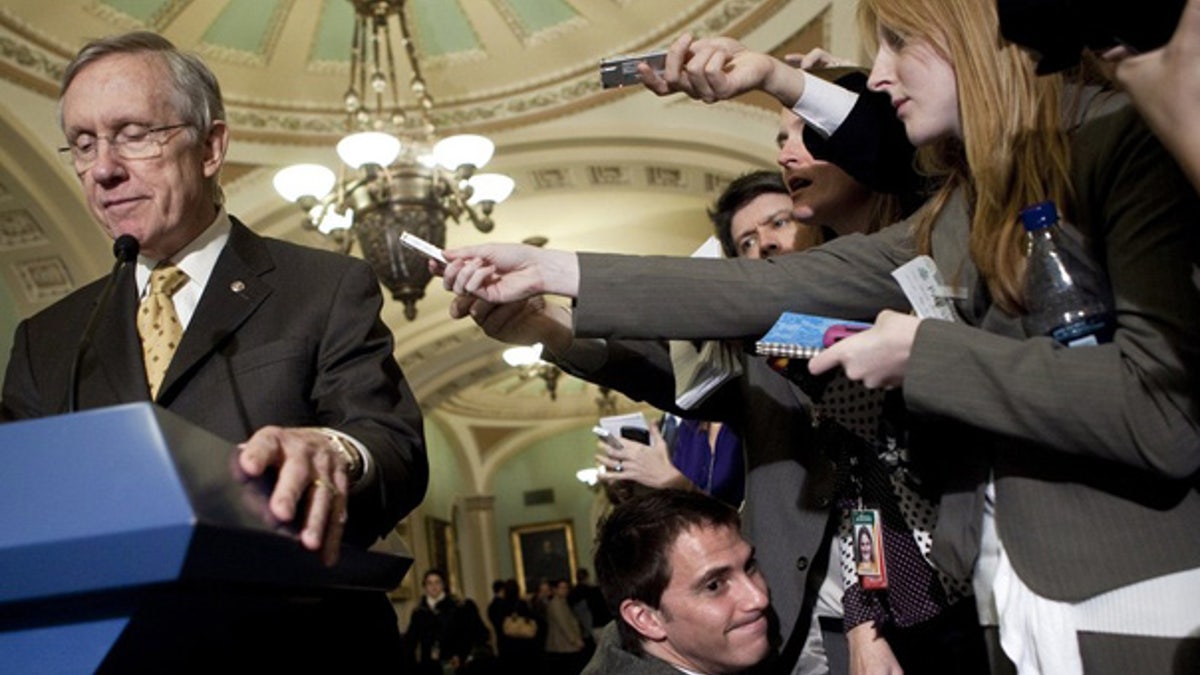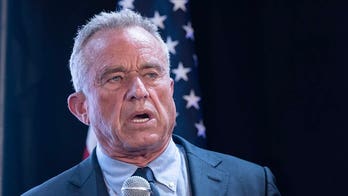
Dec. 7: Senate Majority Leader Harry Reid speaks on Capitol Hill. (AFP)
Democratic lawmakers are ratcheting up a campaign to kill the filibuster after Republicans threatened last week to block any legislation until issues on tax cuts and the federal budget were resolved.
Senate Democrats, mostly junior members, are vowing next session to a majority vote that would eradicate the three-fifths vote requirement for legislation to move through the upper chamber.
Eliminating the filibuster, the preferred tool of obstruction by minority parties in the U.S. Senate, could make it easier for Democrats to pass President Obama's agenda. But the political complexion of the next Congress -- a Republican majority in the House and diminished Democratic presence in the Senate – complicates filibuster reform. Legislation that passes the GOP-controlled House might be preferable to a Republican minority in the Senate.
And in a twist of irony, some Senate Democrats are threatening to filibuster a deal that Obama cut with Republican leaders to extend the Bush tax cuts for all households, including the wealthiest ones, for two years and to renew federal unemployment insurance for 13 months.
Still, most Senate Republicans oppose reforming the filibuster process, and their 47 seats in the Senate next session is enough to block it.
Yet at least one Republican supports filibuster reform. Sen.-elect Dan Coats of Indiana, who previously served in the upper chamber for 10 years, until 1999, told Fox News that the 60-vote requirement for bringing a bill to the floor needs to be eliminated.
"There's just too much need for moving forward with action to address our serious economic situation and a number of other issues to not go forward on that basis," he said.
Filibustering, in which lawmakers use seemingly endless debate to block legislative action, has been around for decades but was rarely used until the civil rights era. An opposition filibuster can only be broken with 60 votes – a three-fifths majority.
Some Democrats argue that new rules can be adopted at the start of the next Congress by a simple majority in a procedure called the "Constitutional option."
Sen. Tom Udall, who has set up a page on his website promoting filibuster reform, has said he intends to make a motion on the first day of the new Congress to adopt rules by a simple majority vote.
"Senate rules are supposed to allow for substantive debate and to protect the views of the minority – as our founders intended," he writes. "Instead, they are abused to prevent the Senate from ever voting on critical legislation. The Senate must adopt rules that allow the institution to work for the middle class."
Sen. Jeff Merkley released a filibuster reform proposal last month. The central part of his plan would require senators to filibuster on the floor – a small step that he believes would only require a simple majority to pass instead of the two-thirds needed to eliminate the filibuster completely.
"There are many ways to address the current dysfunction of the Senate. But address it we must," he wrote. "It is essential, however, that we are prepared to live under the rules we propose currently as majority members when we are in the minority down the road. Any proposal that does not meet that test is not going to be a fair proposal and would subject to the claim that it is a power grab by the majority."
While the idea of filibuster reform is gaining momentum among Senate Democrats, it certainly didn't help candidates who voiced support for it on the campaign trail.
Alexi Ginannoulias lost in Illinois, as did Jack Conway in Kentucky, Elaine Marshall in North Carolina, Lee Fisher in Ohio, Kendrick Meek in Florida, Paul Hodes in New Hampshire and Robin Carnahan in Missouri.




